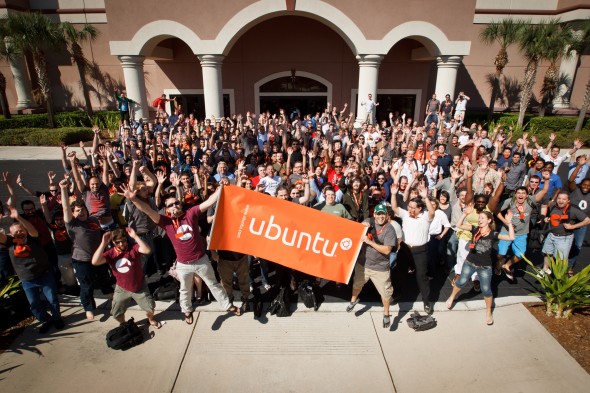Canonical Founder Mark Shuttleworth has announced that Canonical's goal is to get 200 million Ubuntu users in four years. He made the declaration while delivering the keynote at the Ubuntu Developer Summit in Budapest, Hungary. "We've set the bar for disciplined design in free software," Shuttleworth said according to OMG! Ubuntu!.
"We're starting to see real leadership and innovation here in the Ubuntu community. My view on this, and it's just one view, is that we're in the crucible… were the conduit; we're the place where the software lands in users hands. This gives us a unique perspective and gives us responsibility. [Our] goal is 200 million users of Ubuntu in four years. We're not playing a game for developers hearts and minds – we're playing a game for the worlds hearts and minds. and to do that we need to play by a new set of rules."

Ubuntu is currently the most popular Linux distribution, but that's really not saying much. The most recent market share numbers shows that Linux is used by 0.94 percent of Internet users. We know there are somewhere over 1 billion computers online, which would imply less than 10 million Linux users.
Canonical does not provided data on how many users are currently using Ubuntu, although it certainly could figure it out based on connections to the Ubuntu Software Centre. Without the company's help, that number is rather difficult to track, because the number of downloads of Ubuntu do not reflect the number of its users.
Let's be generous and say the number is somewhere near 20 million. This means that Shuttleworth wants Ubuntu's user base to grow 10 times over. That's certainly possible, but we don't see how he can pull it off in just four years. There would need to be a huge incentive for Windows and Mac users to start switching. Although Ubuntu continues to see great improvements, there's still no killer feature to convert the masses.
Last month, Canonical released Ubuntu 11.04. The new version introduced a new desktop shell called Unity, which is the culmination of two years' design and engineering effort by Canonical and the Ubuntu community. For PC users, Ubuntu 11.04 supports laptops, desktops, and netbooks, superseding Ubuntu Netbook Edition for all PC netbooks.
In my opinion, the release had a particular focus on beautifying and simplifying the OS. It's a good step, but it's nowhere near enough to reach the company's goal.
https://www.techspot.com/news/43709-mark-shuttleworth-200-million-ubuntu-users-by-2015.html